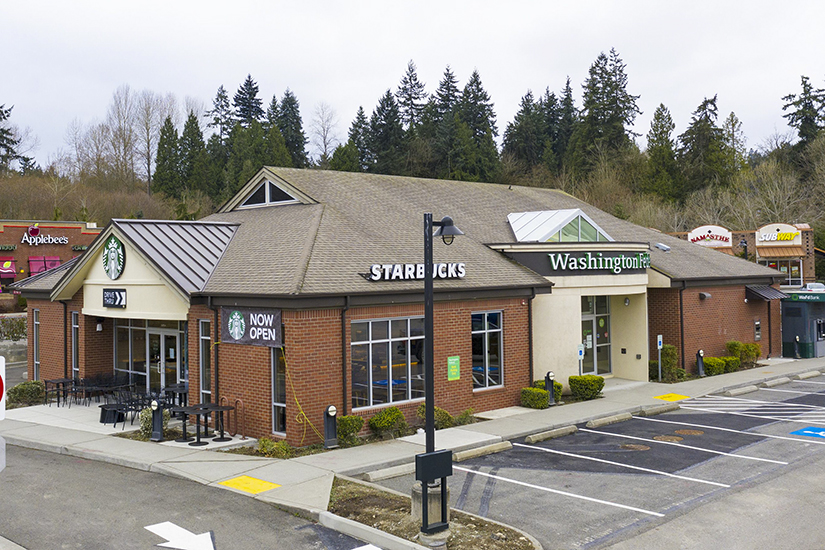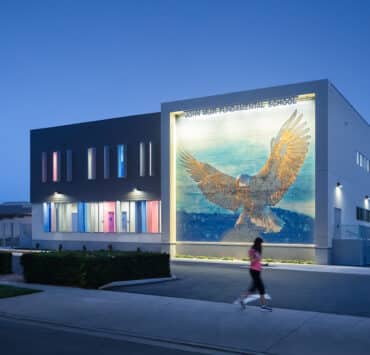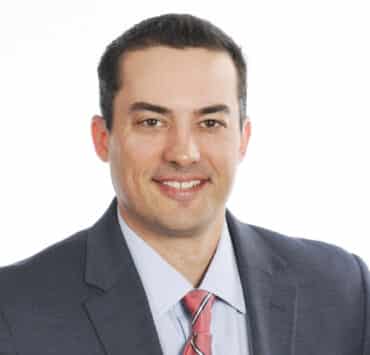|
Getting your Trinity Audio player ready...
|
Plano, Texas, residents driving past 6917 Independence Parkway recently might have noticed a new Chipotle had opened in a space formerly occupied by Boston Market—but unless they were craving a Burrito Bowl, they probably didn’t give much thought to the transition.
Garrett Johnson gets it: he had the same mindset before he got into real estate development. “You don’t give a thought how a building reopened, but it took a lot of people working together,” he says. “I don’t think I knew that.”

As the vice president of real estate at Avalon Development, based in Scottsdale, Arizona, he now leads that process. Avalon, he says, does not just buy a piece of property and lease out the land. “We do entitlements, we do construction, we do research and property management, we’re pretty much a full-service shop,” Johnson notes.
To get that Chipotle up and running, he says, “there were a lot of hands that had to be held to make sure needs were satisfied and that the entire process was coordinated. There is generally a long timeline between when you find a potential site to when you are closing it out and turning it over to a property manager. There are so many pitfalls.”
Johnson grew up in southern California. His mother was a former teacher who became an attorney for the insurance company CNA, and his father was a West Point grad who entered private practice as an attorney after retiring from the Army. So, Johnson naturally assumed he would follow in their footsteps and become a lawyer. “But after taking a lot of pre-law college courses, it did not seem like something that had enough variability to retain my attention for a significant period of time,” he says. “That is one of the aspects of real estate that is fulfilling; no two days are the same.”
Nor are any two real estate projects the same; each has its own identity. The ones Johnson most likes to engage with are ones that require shared city and community support, he says. “It is fulfilling to see a development erected after the city and community originally said they would not support it. We have had a few sites that a city would not approve for development, only to have them change their perspective after we worked with the community and city staff to come to a compromise and alleviate whatever their concerns were.”

Johnson is also gratified when a building that has fallen into disrepair and is in need of “a good amount of TLC” is retenanted, he says. “It really illustrates how developers and class A tenants can work together to reuse and retrofit existing spaces and leave a minimal impact on the land’s footprint.”
An example of this is a Seattle-based project where Avalon took a bank building that was too big—it partnered with the bank and a purveyor of coffee to repurpose the building. It was a prime example of how tenants are reducing footprints by getting creative to maximize allotted spaces in buildings without tearing them down.
“The challenges are many,” Johnson says. “These include not being able to conform to all the design standards the tenant wants because of site limitations. The existing parking was not designed for food usage. The city’s process also delayed construction and the opening.”
Even before the pandemic, Johnson considered real estate development “not for the faint of heart.” He credits his own service in the military with helping him develop the tools to help him withstand the job’s roller coaster-like fluctuations. Being a Marine, he says, instilled in him the ability to know when you have to lead or follow. “We surround ourselves with experts in the field, among them environmental, civil engineers, architects, and lawyers. We have to know when to listen to their advice and when to overrule their advice.”

Further, he adds, “you interact with so many different people in the military—both good and bad—and your ability to read the room and get people to do what you want becomes almost second nature. Lastly, the military has taught me that nothing is as bad as it seems. Having been to some not-nice places, I assure you that it can be and is worse out there. Always work the problem and usually it works out.”
This involves being a good neighbor and engaging the community in projects, according to Johnson. For example, he is involved with a Dallas-based storage unit project. “We don’t think it’s fair to throw down a monolithic concrete structure and say, ‘Good luck, guys,’” he says. “I’ve talked to city council members and people who live next door to the property who will see it every single day. We’ve met with the homeowners on a Zoom call and said, ‘Here is our plan; how can we mitigate your concerns?’”
Foresight and planning have allowed Avalon Development to open locations during the pandemic. “We saw the writing on the wall for multitenant buildings,” he explains. “We saw trends toward stand-alone usage. We saw Starbucks wanting more drive-throughs. Chipotle is moving toward that model. The one that opened in Plano is one of the first in the city—and one of the first in DFW—to feature a Chipotlane, a drive-through pickup lane.”
Johnson and his wife, a successful businesswoman, have two children under the age of six.
He takes great pride in showing his kids the projects he has spearheaded or is currently working on. The new Chipotle in Plano, he says, “was a hectic deal that had to close quickly and had a lot of constraints. But everything came out perfect and everyone’s happy. I took my family to the grand opening. I enjoyed pointing it out to my kids and saying, ‘I did this.’”


